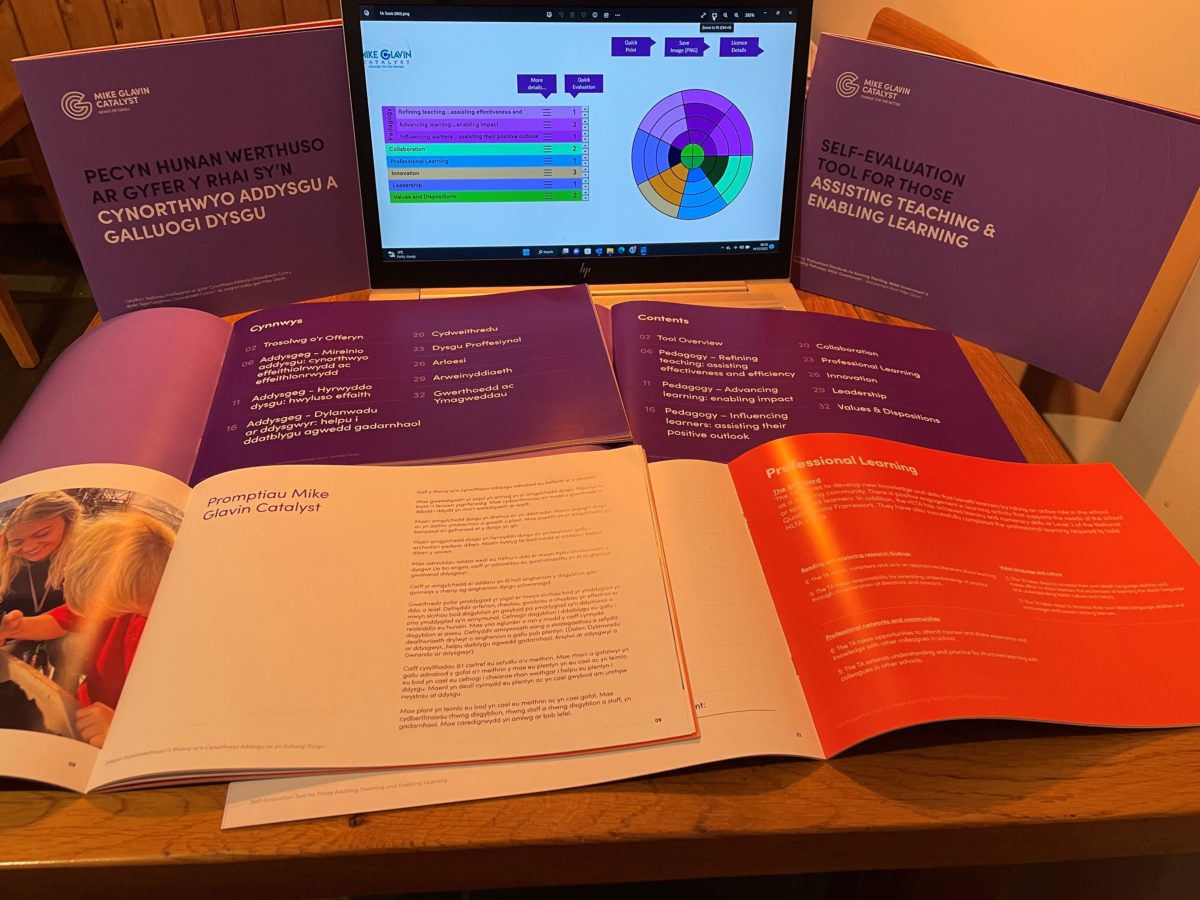Facilitating the work of those that assist teaching.
It wasn’t a planned journey. It wasn’t even a journey I had anticipated. Nevertheless, I found myself journeying into the world of those that assist teaching.
Having seen at first hand the impact of my school leadership development tool, a headteacher enquired if I had a similar tool to support the teaching assistants within her school. At the time I didn’t have such a tool but, over that summer, I created one using the Welsh Government’s ‘Professional Standards for Those Assisting Teaching’ and ‘Enabling Learning’ (Formerly known as ‘Enabling Pathways’), along with the technology devised for my school leadership tool.
From the very start of the journey I was hit by the lack of clarity. A variety of titles exist for these staff including teaching assistant, learning support assistant, teachers’ aid, higher level teaching assistant and pupil support assistant. To add to the confusion there are a number of grades and a variety of job descriptions for these roles.
However, there is greater clarity in that these staff are often those that work the hardest and are paid the least. I know from my own experience that schools could not achieve all that they do without this group of workers, whatever you choose to call them. Pick your own metaphor; the glue that holds everything together or the oil that keeps the school machine functioning, perhaps? Its these staff and their dedication, care and flexibility that ensure individual pupils’ needs are met and that schools operate smoothly.
With a degree of embarrassment, I must admit to not having previously made myself familiar with the professional standards for those assisting teaching. I knew they existed but had never had cause to look at them in any detail. As I worked my way through the standards, exemplifying as I went and matching them to the relevant parts of Enabling Learning, it became apparent that collaboration was key to the role these staff performed. Yet collaboration needs more than one party and I couldn’t help but wonder how many of those with whom these staff were meant to collaborate were as ignorant of the standards as I had been.
It is important to me that any resource I produce is of high quality and yet affordable to schools. Following proof reading, graphic design, printing, translation and IT support for the digital tool, I was able to make the tool available in English and in Welsh for £45.
It was also important to me that I could be certain that the tool had the impact for which it was designed. I therefore trialled it in three primary schools. The feedback can be found here: Client Feedback (glavincatalyst.co.uk)
As part of my work I explored with those assisting teaching what facilitated their work (enabling) and what hampered their work (blocking). A summary is provided in the table.
| Enabling | Blocking |
| Good communication. Having information first hand, ideally at the same time as everyone else. | Poor communication Getting different information or diluted information. |
| High quality professional development | Being given tasks such as tidying and cleaning whist the teachers have the quality professional development. |
| Involvement in shaping policies that they need to implement e.g. feedback, teaching and learning. | Being told by others what the policy is, especially when this differs depending on who is giving the message. |
| Involvement in the aspects of self-evaluation and school improvement that directly relate to their work. | Being excluded from self-evaluation and school improvement so not always having the bigger picture or understanding why things are being done. |
| Collaborating with planning so that it is fully understood. | Being handed planning with no input, often just before the lesson. |
| Having clarity with regard to the learning intention, what progress looks like and assessment/recording methodology. | Being asked to supervise tasks or deliver lessons with little knowledge of the intent, what progress looks like or how assessment should be made and recorded. |
| Being given time to perform the role they have been asked to do. | Being moved to cover different roles and not having time to perform their substantive role effectively. |
| Teachers that collaborate. | Teachers that do not collaborate. |
| Understanding behaviour management and being allowed to use the strategies established within the school. | Not understanding behaviour management policy, not being trained in its implementation and having to defer to teacher to manage behaviour. |
| Managing pupils that they are fully equipped/trained to work with. | Being expected to deal with the most challenging of pupils that qualified teachers are unable to manage. |
| Having time to work with/share with others within the school that assist teaching | Never being able to have professional dialogue with others that assist teaching e.g. different breaks, no professional sharing opportunities |
| Positive relationship with parents/guardians based on mutual respect. | Relationships with parents/guardians that are fractured by lack of respect or unrealistic expectations. |
| Interventions link with classwork, building on previous learning/preparing for new learning. The class teacher ensures that learning from intervention sessions is reinforced/practiced within class. | Interventions are discreet and disconnected from class learning. There is little effective collaboration with the class teacher. |
| When working with ALN pupils they contribute to and have full working knowledge of all relevant information such as the IDP, pupil profile, handling plan etc. | Being required to work with ALN pupils without knowing the relevant information or playing and active role in the IDP process. |
I urged all that are fortunate enough to work alongside those that assist teaching to become familiar with the relevant professional standards. If unable to do so, I hope that the contents of the table above will assist in ensuring the learners benefit fully from all that the additional adult can provide.
May 2023
Self-Evaluation Tool for Those Assisting Teaching (glavincatalyst.co.uk)

